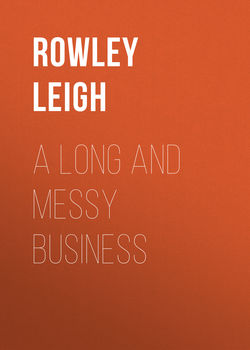Читать книгу A Long and Messy Business - Rowley Leigh - Страница 51
На сайте Литреса книга снята с продажи.
ОглавлениеMarch
For some reason these dishes that have washed up on
the shores of March all have rather basic ingredients.
I admit wild sea bass is a luxury these days – farmed
sea bass is ubiquitous despite its extraordinary lack of
flavour – but here the wild fish is given the most honest
and least fancy of treatments. For the rest, you can buy
most of this this stuff just about anywhere.
One of the joys of writing for the Financial Times is
the range of ingredients with which I can work. There
is an understanding that our readers are a sophisticated
bunch and have the access and the means to buy the
rarefied and expensive, if they want them. By the same
token, I can choose the humblest of ingredients if I so
wish. Some of the more plutocratic readers positively
pine for simplicity after being forced to dine out in
fancy restaurants and at corporate dinners.
Even simplicity has its price. For one thing, if you are
going to make minestrone, it will taste better when
made with the freshest and most beautiful vegetables.
For another, the cook has nowhere to hide. The
acquacotta is so ridiculously simple, a poached egg
in a little vegetable stew, that you might read the
recipe three times and still wonder what it is about.
This is cooking stripped of artifice: it is about making
something out of very little, out of the first few bits of
stuff from the kitchen garden, out of a few leftovers
from your veg box – the one that gives you a cabbage, a
parsnip, a couple of purple carrots and six broad beans
– and coming up with something fresh and nutritious.
Just try it for a light lunch or a Sunday supper.
Faites simple. That was Escoffier’s dictum: every
chef claims it as their lodestar and most disregard it
totally. And you can see why. People don’t always
want simplicity: they crave novelty and ‘originality’
and that usually means chucking an extra ingredient
or three into the mix.
